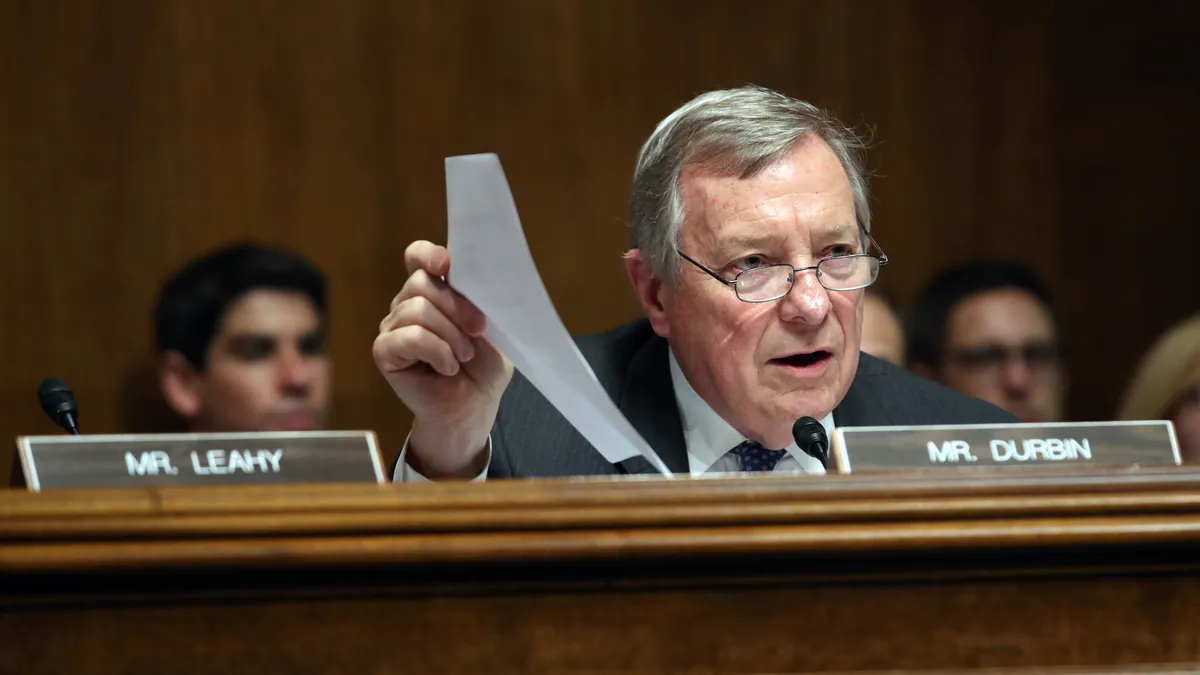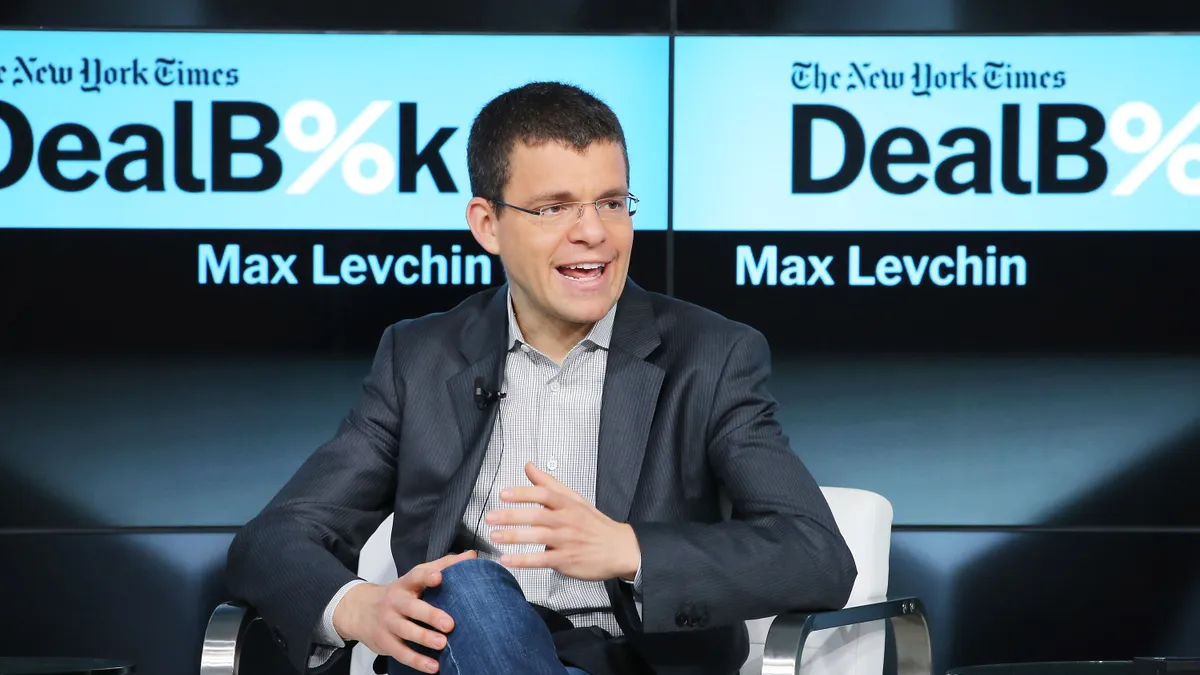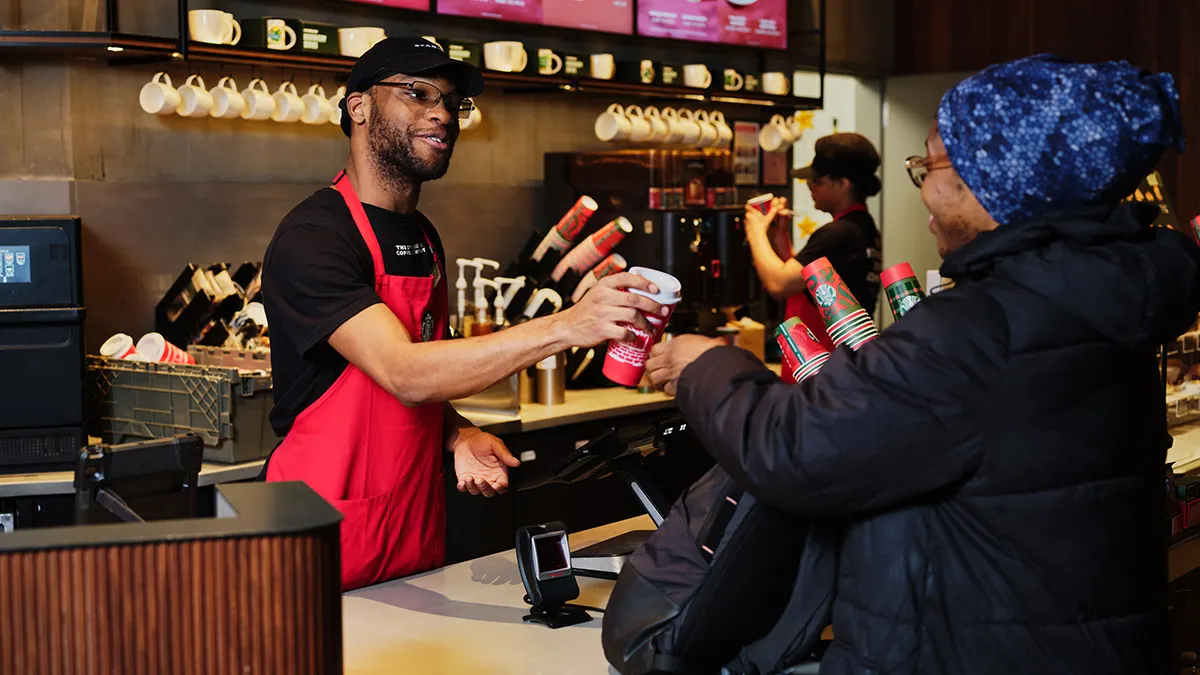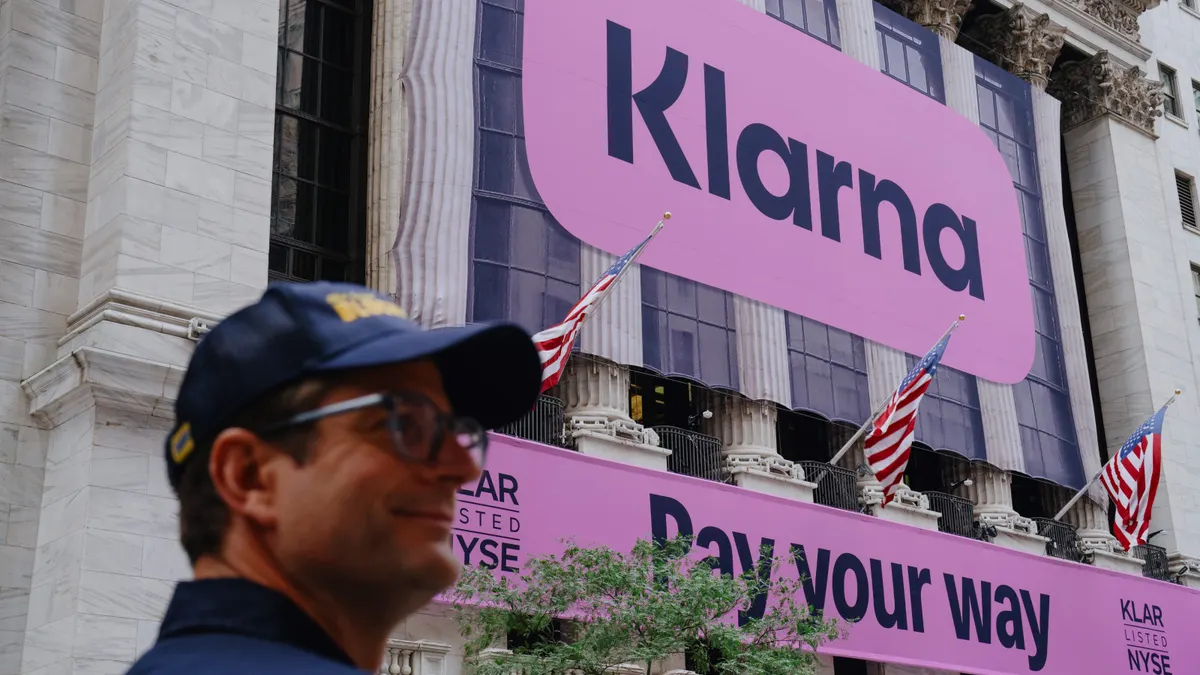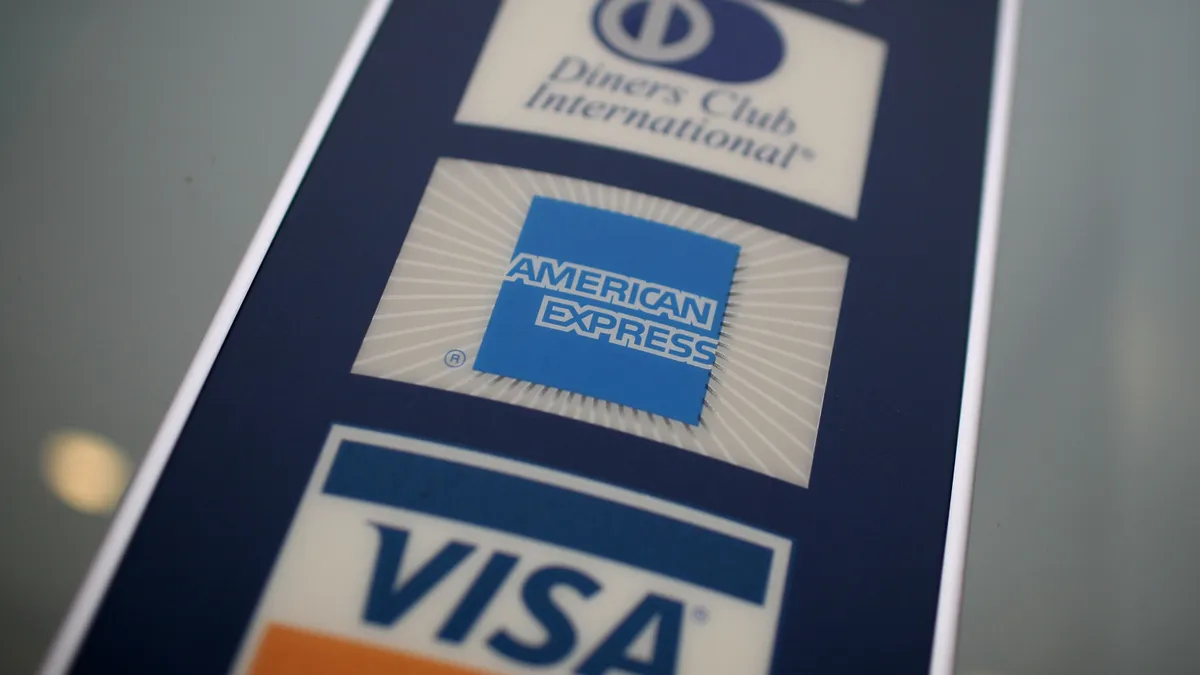Senate Majority Whip Dick Durbin took to the chamber floor Thursday to press his case for a vote on the Credit Card Competition Act proposal, pushing back against opposition from United Airlines in the process.
Durbin, an Illinois Democrat, and co-sponsor Kansas Republican Roger Marshall have sought passage of the bill since last year, at one point suggesting it would win approval before the end of this year. But that goal may have evaporated in the face of more pressing congressional issues, namely a budget stalemate and Israel’s crisis.
The bill would require big banks that issue credit cards to ensure that merchants have access to a card network for processing customer transactions that isn’t Visa or Mastercard. Durbin and Marshall have railed against that “duopoly,” saying the two companies control about 80% of the U.S. market and thereby extract exorbitant interchange fees, also known as “swipe” fees, from merchants for processing credit card payments.
The senators contend more competition in the industry would give merchants a break on fees, and as a result, deliver savings to consumers. Durbin called the fees “outrageous” in his remarks on the Senate floor Thursday, saying retailers, restaurants and other merchants as well as consumers have no choice but to pay them.
“There is no negotiation on this fee — there is no competition,” Durbin said. “In 2022 alone, U.S. merchants and consumers paid $93.2 billion in credit card interchange fees to line the pockets of the biggest banks on Wall Street.” Durbin called the situation “absolutely unacceptable and unfair,” making it a “priority” for him to get the bill passed. “We can and must do something about it,” he said.
Durbin takes on United
In his remarks, Durbin responded to opposition from his home state airline company, United Airlines. Like other carriers, Chicago-based United earns profits from co-branding credit cards with banks, such as JPMorgan Chase and Capital One, and tying its frequent flyer loyalty program to the cards.
Durbin called out United CEO Scott Kirby for saying the bill would kill frequent flyer programs, labeling that statement “patently false,” and citing an unspecified study as having determined the bill would have a negligible impact on the programs. He suggested United Airlines earned more money from its credit card programs than from its flight operations, without providing any supporting data.
“My bill is not coming after your airline rewards programs, or any other program,” Durbin said. “Any effort by the airline industry or big banks to convince you otherwise is just a scare tactic.”
A spokesperson for United declined to comment, other than to refer to Kirby’s remarks on the topic during a third-quarter earnings call with analysts in October.
“This bill would kill rewards programs — they would not exist anymore,” Kirby said on that call, noting that 84% of Americans are members of rewards programs. “I think it’s bad policy.”
Battle over the bill intensifies
Some airline unions have also opposed the bill, echoing management’s concerns. Nonetheless, other major unions, including the International Brotherhood of Teamsters, have backed the legislation.
In his Senate floor remarks this week, Durbin pointed out that lower interchange rates have not led to the demise of frequent flyer programs. In Europe, where interchange fees are lower, the airlines’ frequent flyer programs are “comparable, if not better, than anything offered” in the U.S., Durbin argued. Then he doubled down on his prior threats to investigate the airlines’ frequent flyer programs.
“I’m going to be taking a look at these frequent flyer programs now that United Airlines wants to make such a to-do about it,” Durbin said in his floor speech. “We’ve got to make sure that the American consumer is getting what they think they’re getting.”
In October, Durbin and Marshall addressed a joint letter Monday to the heads of the U.S. Department of Transportation and the Consumer Financial Protection Bureau, calling on those agencies to dig into “unfair, abusive, and deceptive practices” happening in the frequent flyer programs.
Moving bill through Congress
Supporters and detractors of the CCCA bill suspect that the sponsors will try to attach it to a larger piece of legislation, including possibly increased funding for Israel. Last year, there was a similar attempt to attach it to a national defense funding bill.
Given the pitched political battle, with heavy lobbying from retail groups on one side and financial institutions on the other, the bill has been having difficulty attracting additional co-sponsors. The Senate bill, SB 1838, has three sponsors and the companion legislation, House bill 3881, also has bipartisan support with seven sponsors.
In a flurry of press releases about the legislation this week, proponents of the bill called on Democratic leaders to make good on vague promises to have the bill heard in this Congress, which would include next year for the two-year cycle. “The sponsors of this legislation were promised a vote and it’s time to make good on that promise,” National Association of Convenience Stores General Counsel Doug Kantor said in an emailed release.
Kantor is also a member of the Merchants Payments Coalition, which has backed the bill, doing battle against banks’ lobbying organizations, including the Electronic Payments Coalition. While advocates say they’re particularly concerned about the processing fees that small businesses are forced to pay, detractors of the bill say it’s all about satisfying the demands of big-box retailers.
“Senator Durbin spoke today to appease the corporate mega-store lobbyists at Walmart, Target, and Home Depot funding his campaign to impose new mandates on your credit card,” EPC Executive Chairman Richard Hunt said in an emailed statement Thursday.
For his part, United’s CEO said he’s been making the rounds on Capitol Hill, telling lawmakers how the fees fund important aspects of the card network, such as cybersecurity safeguards. He has been pushing them to send the bill through the usual congressional committees, and not fast-track it to the Senate floor as part of another bill.
“As long as we examine it through regular order, which is the right way to pass consequential legislation, the facts will win the day and nothing is going to happen and it won’t become law,” Kirby told analysts on the October call.


